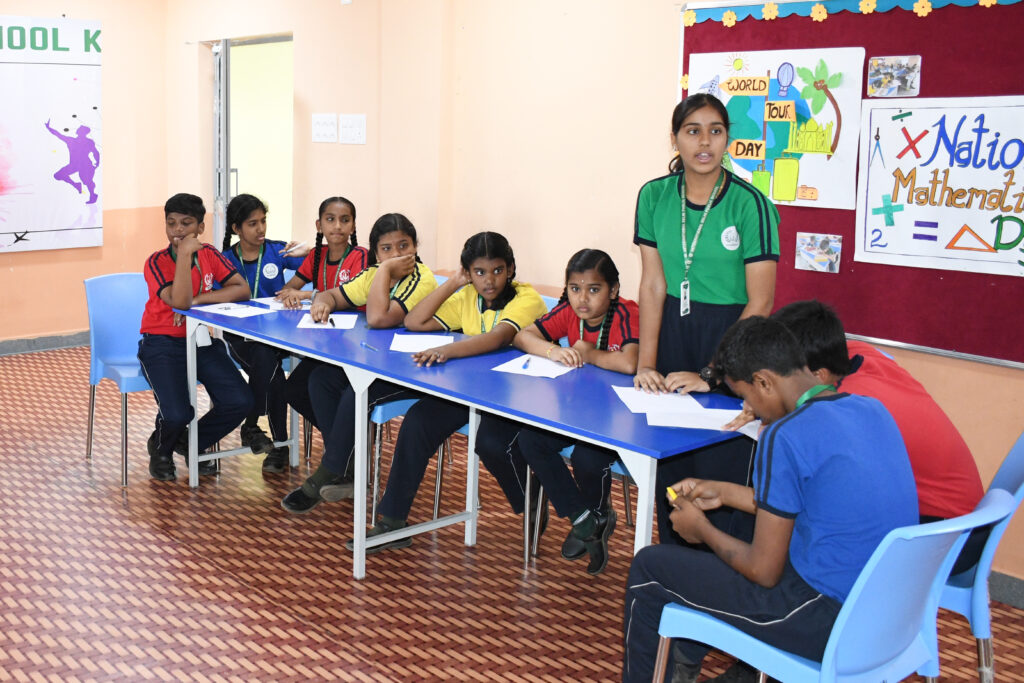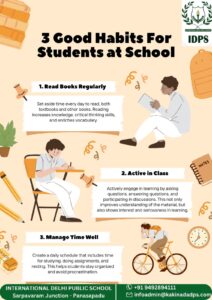Empowering Students: Life Skills Training at Delhi Public School Kakinada
Building Confident, Capable, and Responsible Individuals
Education today goes beyond textbooks and exams. At Delhi Public School Kakinada, the focus is on nurturing well-rounded individuals who can face real-world challenges with confidence and competence. The school’s Life Skills Training Program plays a key role in this journey, empowering students with practical knowledge, emotional intelligence, and decision-making abilities that extend far beyond the classroom.
What is Life Skills Training at DPS Kakinada?
Life Skills Training at Delhi Public School Kakinada is a structured, age-appropriate program that equips students with essential interpersonal, cognitive, and practical skills. These include communication, empathy, self-awareness, time management, leadership, conflict resolution, and responsible decision-making.
The program is integrated into the school curriculum and is designed to help students apply their academic knowledge in real-life situations while nurturing mental and emotional strength.

Why is Life Skills Training Important for Students?
Academic knowledge alone is no longer sufficient for success in today’s complex and rapidly evolving world. Life skills training is crucial because it:
- Bridges the gap between education and everyday challenges
- Promotes mental well-being and emotional intelligence
- Fosters critical thinking and adaptability
- Enhances self-confidence and social skills
- Prepares students for future careers and personal growth
By instilling these life skills early, DPS Kakinada ensures students are equipped to thrive both in school and beyond.

How is Life Skills Training Implemented at DPS Kakinada?
The school adopts a practical, engaging approach to life skills education, ensuring students learn by doing and reflecting:
- Weekly Life Skills Classes: Held as part of the curriculum for every grade level.
- Activity-Based Learning: Role-plays, group discussions, storytelling, debates, and games simulate real-life scenarios.
- Workshops and Guest Talks: Experts from various fields are invited to interact with students.
- Integration with Subjects: Life skills are embedded into lessons from language, science, and social studies.
- Peer Learning: Students often work in teams to solve problems, encouraging collaboration and empathy.
- Reflective Exercises: Journaling and sharing circles allow students to process and apply what they’ve learned.

Key Features of Life Skills Training at DPS Kakinada
- Holistic Curriculum: Covers emotional, social, cognitive, and ethical development.
- Customized by Age Group: Activities and topics evolve with the student’s grade level.
- Inclusive Approach: Ensures all learners—regardless of background or ability—can participate and benefit.
- Teacher Training: Educators receive regular guidance on effective life skills instruction.
- Interactive Modules: Includes multimedia resources, real-life case studies, and simulations.
- Collaborative Projects: Students work on community outreach and school improvement initiatives as part of learning.

Benefits of Life Skills Training for Students
- Better Communication: Students learn to express themselves clearly and confidently.
- Improved Emotional Regulation: Helps manage stress, anger, and anxiety in healthy ways.
- Stronger Relationships: Builds empathy, teamwork, and conflict-resolution abilities.
- Smarter Decision-Making: Encourages thoughtful analysis and responsibility.
- Time and Goal Management: Students become more organized and self-motivated.
- Career Readiness: Develops problem-solving and leadership traits essential for success in any field.

Process of Conducting Life Skills Training
- Needs Assessment: Teachers assess the specific needs of each grade to design relevant sessions.
- Curriculum Design: The life skills program is mapped across the academic year, aligned with developmental goals.
- Interactive Delivery: Activities are conducted in small groups with active participation.
- Monitoring and Feedback: Teachers observe students’ behavioral improvements and adapt strategies accordingly.
- Evaluation: Students are evaluated based on participation, behavior, teamwork, and applied understanding.
- Parent Engagement: Parents are kept informed through orientations and workshops to reinforce skills at home.

Conclusion
At Delhi Public School Kakinada, life skills training is more than just a subject—it’s a philosophy that shapes responsible, resilient, and confident learners. By integrating real-life learning into the school experience, DPS Kakinada prepares students not just for exams, but for life itself.
With a balanced blend of academic rigor and emotional development, the life skills program ensures that every student graduates not only with knowledge but with the wisdom, empathy, and strength to face life’s challenges and seize its opportunities.
Frequently Asked Questions
Life skills encompass a range of abilities that enable individuals to effectively navigate challenges, make informed decisions, and interact harmoniously with others. These skills are crucial for personal development and success in various aspects of life.
While specific programs at DPS Kakinada are not detailed, schools often integrate life skills development through:
Curriculum Integration: Incorporating life skills topics into regular lessons.
Workshops and Seminars: Organizing sessions focusing on various life skills.
Extracurricular Activities: Providing opportunities for students to engage in activities that promote life skills.
While specific collaborations are not mentioned, schools often partner with external organizations or trainers to provide specialized life skills training. For instance, certified trainers like Ravi Teja offer life skills training in Kakinada, focusing on areas such as personality development and communication skills.
Parents and students can stay informed about life skills programs by:
Attending School Meetings and Orientations: Participating in sessions where life skills initiatives are discussed.
Engaging with Teachers and Counselors: Communicating with school staff to learn about available programs.
Monitoring Official School Communications: Keeping an eye on newsletters, notices, and other communications for updates on life skills initiatives.
Developing life skills leads to:
Enhanced Decision-Making Abilities: Improved capacity to make informed choices.
Better Interpersonal Relationships: Stronger and more effective interactions with others.
Increased Self-Confidence: Greater belief in one’s abilities.
Improved Academic Performance: Better focus and engagement in studies.
Preparation for Future Challenges: Readiness to face various life situations effectively.








